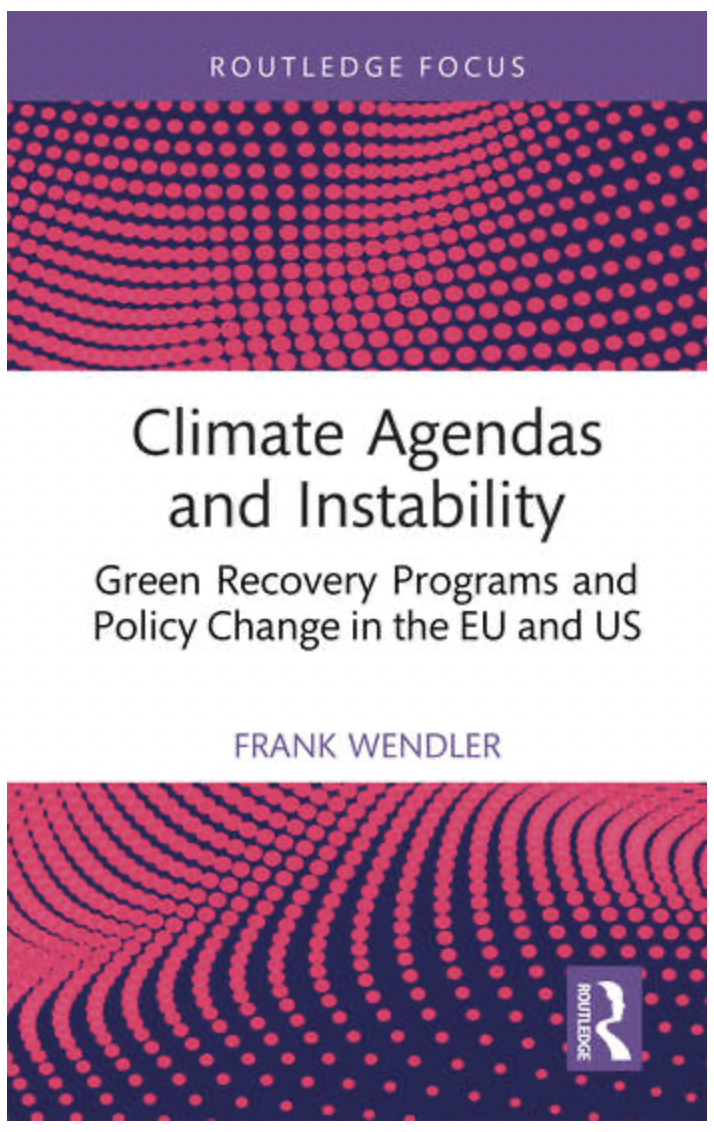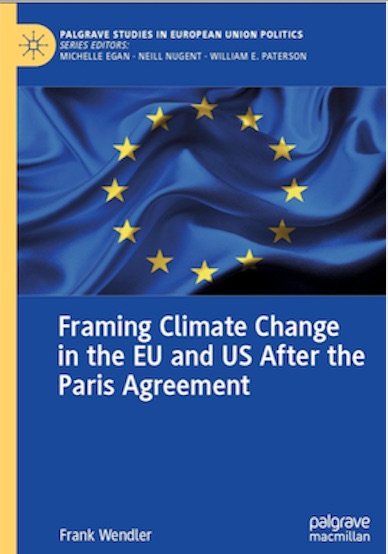PD Dr. Frank Wendler

Privatdozent
Anschrift
Büro
Sprechzeiten
- Nach Absprache per email.
Kontakt
Willkommen auf meiner Seite!
Ich bin Privatdozent an der WiSo-Fakultät für das Fachgebiet Politikwissenschaft und seit dem Frühjahr 2020 Mitglied des Center for Sustainable Society Research (CSS).
An dieser Stelle leite ich seit dem 1. Juli 2023 das Forschungsprojekt:
"Politische Räume der Klimagovernance" (Eigene Stelle / DFG). Zentrale Fragestellungen und Ansätze des Projekts sind in diesem Poster und ausführlicher in einem Working Paper des CSS dargelegt.
Eine Zusammenfassung findet sich auch auf meiner persönlichen Homepage.
Meine Forschungsschwerpunkte liegen auf den folgenden Themen:
- Klimagovernance in der Europäischen Union und den USA;
- Agenda-Setting und Framing-Prozesse;
- Handels- und industriepolitische Erweiterungen von Klimagovernance;
- Politische Umstrittenheit und Politisierung von policies der EU.
Aktuell arbeite ich zu den folgenden Themen:
- Entwicklung des European Green Deal und verbundener Politikprozesse;
- Climate Policy Integration als Analysekonzept;
- Quantitative Dokumentenanalyse (text as data).
Zu diesem Thema ein aktueller Call for Papers im Rahmen des GreenDeal-NET:"The Evolving Politics of the European Green Deal: New Perspectives Using Text-as-Data Approaches" (deadline 10. Januar 2025).
Ausgewählte aktuelle Publikationen:
Monographie (2024): "Climate Agendas and Instability. Green Recovery Programs and Policy Change in the EU and US", Routledge Focus in Comparative Politics Series, link zur Verlagsseite hier
Working Paper (2024): "Political Spaces of Climate Governance. Theoretical Framework and Research Program", CSS Working Paper No. 10, Juli 2024, link hier.
Artikel (2023): "The European Green Deal Agenda After the Attack on Ukraine: Exogenous Shock Meets Policy‐Making Stability"; in: Politics and Governance, Special Issue: Governing the EU in the Polycrisis, Vol. 11 (4), DOI:https://doi.org/10.17645/pag.v11i4.7343
Artikel (2023): (mit Achim Hurrelmann): “How does politicisation affect the ratification of mixed EU trade agreements? The case of CETA”; Journal of European Public Policy, Special Issue: Reacting to the Politicization of Trade Policy. Guest Editors: Dirk De Bièvre, Andreas Dür and Scott Hamilton; https://doi.org/10.1080/13501763.2023.2202196, Link hier
Monographie (2022): “Framing Climate Change in the EU and US After the Paris Agreement”, Palgrave Macmillan, 2022, Link zur Verlagsseite hier
Working Paper (2022): “The Politicization of Climate Change Governance. Building Blocks for a Theoretical Framework and Research Agenda”, CSS Working Paper 06/2022, Link hier
Artikel (2022): (mit Achim Hurrelmann): “Discursive postfunctionalism: theorizing the interface between EU politicization and policy-making”, Journal of European Integration, published 3 March 2022, https://doi.org/10.1080/07036337.2022.2045592; Link hier
Artikel (2021): “Contesting the European Union in a Changing Climate: Policy narratives and the justification of supranational governance”, Journal of Contemporary European Studies, https://doi.org/10.1080/14782804.2021.1882107; Link hier


